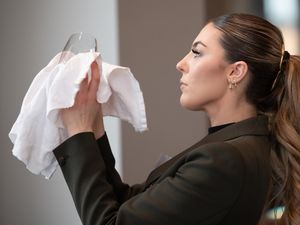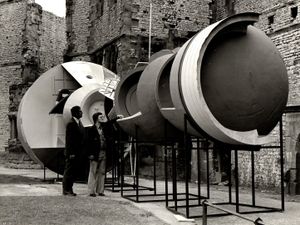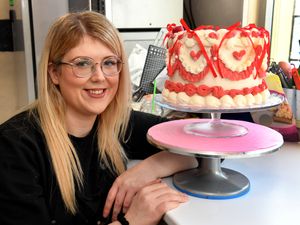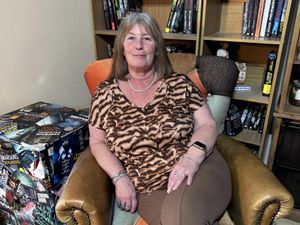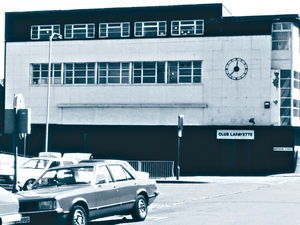New breed of stock farming: What it's like to be a rare breeds farmer
They are passionate about producing “good food from happy animals reared in a countryside rich in wildlife”.
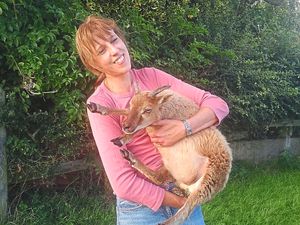
Husband and wife team Andy and Helen Dalerun The Good Life Meat Company based in Sugnall, near Stafford, where they breed and raise their own pigs, sheep, cattle and hens, specialising in rare breeds.
They had always been keen foodies but were increasingly becoming disheartened with the options available when buying meat, particularly when trying to find information about how the animals had been kept and reared.
Feeling that the food chain had become disconnected between those rearing livestock, distributors and food producers, they started keeping a few pigs for their own use.
Since then, things have grown and the now sell a range of award-winning produce, from sausages to charcuterie and raw meat.
They chose rare breeds because they wanted to go back to traditional farming methods to produce meat that has grown slowly.
They ensure that their animals have plenty of space to roam, living outdoors all year round, with shelter as required.
They also want to ensure their animals have a good death so they’ve chosen to use an abattoir that they know will treat their animals with the respect they deserve.
“We care about how they live and make sure they have plenty of space, living outdoors all year round, with shelter as required - you’d be surprised how, on a frosty morning, our pigs can still be seen lying outdoors.
“We are aiming to produce as little waste as possible by starting to sell fleeces, horns, lard, and anything else which can make our enterprise truly nose-to-tail,” explains Helen, whose background is in wildlife conservation.
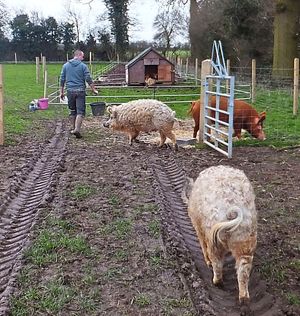
Their rare breeds include Tamworth pigs, which live outdoors and are able to root and forage.
They also have Castlemilk Moorit and Shropshire sheep and both breeds are kept until at least a year old so the meat is hogget or mutton rather than lamb.
And the couple also keep Belted Galloway, which is a traditional Scottish breed of beef cattle.
“They are all rare breeds, all British breeds. We believe they are better suited for the extensive systems that we have and also they are slow growing and taste better,” says Helen.
Helen and Andy believe that their meat products are not only kinder to nature and kinder to their animals, but they also taste better.
They have built up a reputation for their quality produce including their Sugnall Sausages, a traditional English style peppery pork sausage made with sage, onion and mace, and their Merguez Sausages.
The latter are spicy, juicy, north African style mutton sausages which have a high meat content and are spiced with harissa, garlic, fennel and paprika.
The Good Life Meat Company has taken part in a recent promotional video for Farms Not Factories, highlighting the benefits of keeping high-welfare animals.
The non-profit organisation has been asking small-scale pig farmers to film themselves explaining how their businesses are faring and how they have adapted their sales strategies to cope with the impacts of the coronavirus pandemic. The group discovered that most farms are doing well as the lockdown has meant that more people are shopping locally from farmers they trust, rather than venturing further afield.
Helen, who is constantly looking for better ways to farm and improve the pastures for wildlife, says that, fortunately, the coronavirus pandemic has had a positive impact on their business too.
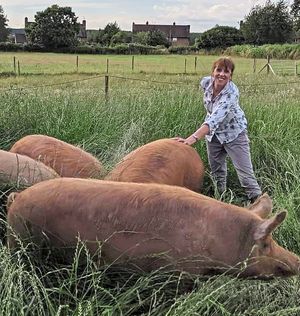
It’s provided them with the time to concentrate on building up their contacts and connecting with the local community.
She also believes that people have increasingly started to question where their food comes from and how it is produced, both in Britain and abroad and she hopes this conversation will continue in the months that follow.
“I think we have probably been extremely fortunate compared to a lot of people during coronavirus.
“If you have livestock, they still need to be fed, they still need to be checked.
“We’ve trying to build up local contacts, we are primarily interested in producing for a local market so we started up a mailing list.
“But I certainly think people have started to think a lot more about where their food comes from and how it’s produced.
“Overall, on balance, we’ve certainly seen benefits to the business by building up a local following, having conversations with people, talking about how food is produced particularly in relation to the pigs and chickens.
“I know lockdown has been a very different experience for lots of people and lots of people haven’t been as fortunate as us but I do hope that conversation and that thinking about where our food comes from, how it’s produced in this country and the food we import and what standards produced it to continue.
“I think these are really important issues that we need to be aware of as a society to inform our choices,” says Helen.
Good Life Meat Company’s video can be viewed at farmsnotfactories.org/articles/farm-case-study-eleven-good-life-meat-staffordshire

